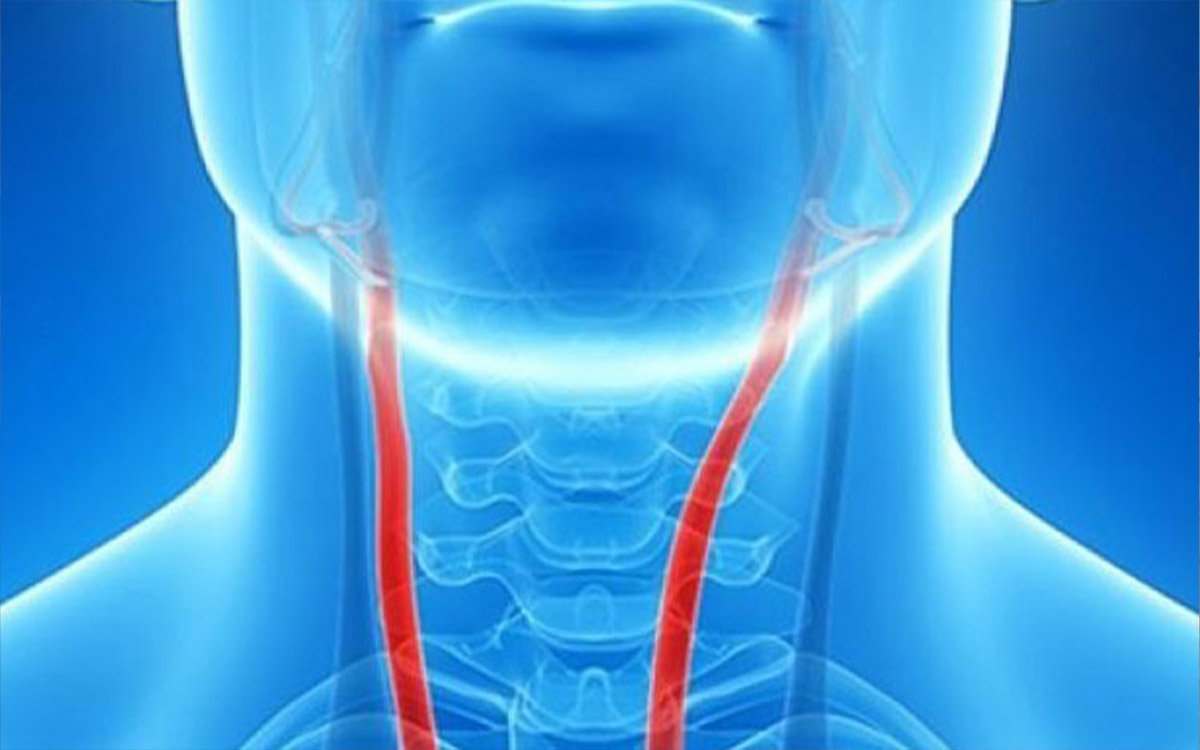Assoc. Prof. Dr. İlker Kiriş
Cardiovascular Surgery

The carotid veins are arteries located on the right and left of the neck, and they carry the arterial blood with high oxygen content to the brain. When we are born, the inner walls of our carotid artery are smooth just like other arteries in our body. The fat, cholesterol, and calcium (calcification) accumulate on the inner walls of arteries over the years. This process is called "atherosclerosis" or colloquially "arteriosclerosis."
Plaques formed due to atherosclerosis gradually narrow the arteries with time. This process, mainly caused by atherosclerosis, affects the arteries in three regions of the body; leg arteries, coronary vessels in the heart, and carotid arteries. The disease in the carotid artery –jugular veins – is the severe stenosis of the jugular veins that carry high oxygen content to the brain due to atherosclerosis.
In the case of severe carotid artery stenosis caused by atherosclerosis, also known as 'vessel stiffness,' the blood amount flowing to the brain decreases, and the risk of stroke increases. Paralysis or stroke develops due to the interruption in the arterial blood supply to the brain. The blood failing to reach the relevant region of the brain for over three to six hours might lead to permanent damage.
Stroke may also occur for reasons other than carotid artery disease. For example, sudden cerebral hemorrhage or hypertension can also lead to a stroke. Severe stenosis or sudden obstruction in the carotid artery causes damage to the brain functions and increases the risk of temporary or permanent paralysis. Since the important cause of carotid artery disease is atherosclerosis, its incidence with cardiovascular diseases is high.
Severe carotid artery stenosis or occlusion may not show any symptoms in general. These patients can be diagnosed with a carotid ultrasound examination for control purposes. Other groups of patients are likely to show neurological symptoms, or complaints such as dizziness, temporary vision loss, or stroke, 'paralysis.' Carotid artery disease is seen at high rates in 'coronary artery disease' patients with stenosis in the coronary vessels that feed the heart. When the carotid disease is severe, and the necessary treatments are not provided, it can lead to severe consequences such as permanent paralysis and death.
Examination procedures are conducted in line with the complaints from the patient. A definitive diagnosis may require imaging of the carotid veins and brain. First of all, carotid vein ultrasonography is performed in patients. Additional diagnostic methods are required to make a definitive diagnosis and decide on the treatment strategy. These diagnostic methods consist of an MR Angiography or CT Angiography and classical 'conventional' carotid angiography. As a result of these examinations, carotid artery diseases are detected, and the treatment process is initiated.
In carotid artery disease, a decision is taken on the treatment method in line with the degree of narrowing and whether there is a complete obstruction or not, also considering the patient's complaints. If the degree of stenosis in the carotid artery is low, anticoagulant medication is administered. If there is severe stenosis in the carotid artery, a carotid artery surgery or stenting may be necessary. Assoc. Prof. Dr. İlker Kiriş has lots of experience in carotid artery surgeries. Assoc. Prof. Dr. İlker Kiriş can examine the patients with carotid artery disease in and outside Izmir province and give them detailed information about the examination and possible treatment options. In case an operation is required, Assoc. Dr. İlker Kiriş successfully performs carotid artery surgeries.
To ensure that the disease is treated more easily and achieve good results, patients with the symptoms and complaints mentioned above should consult a doctor without delay. Patients with severe stenosis in the jugular veins face the risk of paralysis if they do not accept the treatment and postpone their surgery despite being offered surgery.
It is critical that the doctor who will diagnose and treat the carotid artery disease is knowledgeable and experienced in the field. It is vital that the doctor has performed this surgery many times, achieved successful results, and notice the illness from beginning to end. You can contact Assoc. Prof. Dr. İlker Kiriş immediately to find a solution to this disease.

